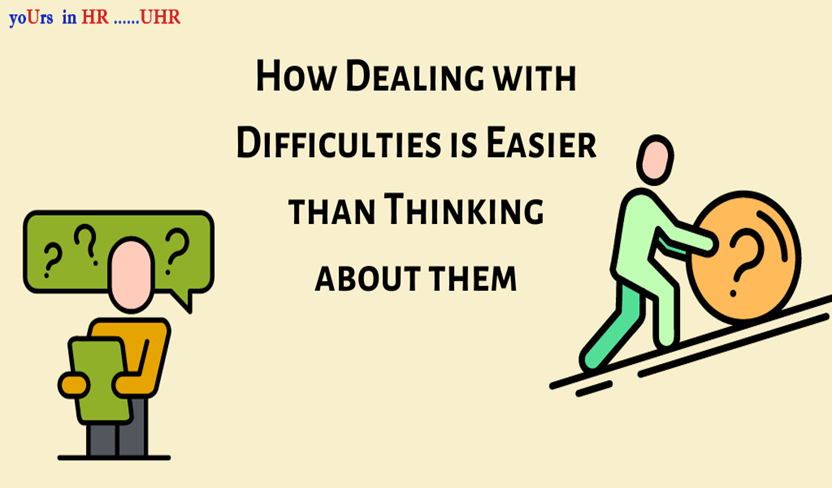
The past few years have taught us two crucial lessons which balance out each other in a harmonious way. Lesson one being: things can definitely take a turn for the worse, and the immediate lesson two being: we are resilient and stronger than we think.
Whether we are dealing with global events, or day-to-day situations at work, it is worth keeping in mind that thinking about a difficulty gives us a harder time than actually living through the difficulty. That is not to say that personal and collective losses, difficulties shouldn’t be taken seriously or that they don’t impact. The gist is that dwelling on a difficulty takes a greater toll on us than accepting the reality and doing something about it. Consider these scenarios.
-A candidate seems to have ghosted on an offer and now you are wondering how you are going to undertake the process all over again, and what are you going to tell your client! Now what?
-The person who was supposed to be your flat-mate has suddenly cancelled and now you are left with the burden of paying the entire rent. You can’t stop thinking about what you are going to do and how you are going to manage with your time of financial crunch. Having the flat-mate was part of the plan to share the burden in the first place! Now what?
-Your workload seems to be increasing progressively through the week, you don’t ever see it reducing. Plus, a colleague has fallen sick, and their part of the workload is soon going to fall on you as well. As if your own workload wasn’t overwhelming you enough! Now what?
We can go on with endless scenarios of this sort. In situations of uncertainty and difficulty, dwelling on those situations is almost never something that makes things better. Instead, what can be done is to:
Accept the reality: We are often living on edge about perceived negativity of a situations. We often feel like something truly horrible cannot ever happen to us. The truth is, it can. Situations can turn horrible and uncertain. But that is part of being a human, and we are all gifted with resilience. The sooner we accept the reality, the sooner that resilience can come to surface.
Be kind to yourself: Perhaps you think it is because of you that something went wrong. Maybe you didn’t communicate well enough, or you were a poor judge of something. Maybe yes, maybe no. Only hindsight can give us answers to such dilemmas. Whether something was your fault or not, it is worth reminding yourself that it is okay to make mistakes and learn from them. While holding yourself up to a high standard and work-ethic is a good practice, being accountable and the best version of yourself should overlap with being kind to yourself.
Take the present, one moment at a time: On the other spectrum of dwelling on what has happened, is thinking about the future (often the worse-case scenario). Living in the present, practicing mindfulness is the key here to finding the solutions. As uncertainties and difficult times fall upon us, it makes sense to pause, and think only about what the immediate next step should be. The rest, we do not know. Step one, step two. Step three and four would soon unfold and we would eventually know how step five looks like. We don’t know it yet, but we would. Soon. The beauty of living in the present, and embracing that we don’t know is that step ten might surprise us pleasantly!
Difficult people, difficult situations, uncertain times and exasperating times of ‘oh here we go again’ might follow us wherever we go. But the key lies in adapting a growth-mindset. Meaning? To embrace that reality, have a willingness to learn and grow, and to take it one moment at a time, knowing that we don’t know. Knowing that living through a difficult situation is a lot easier than thinking about it.

